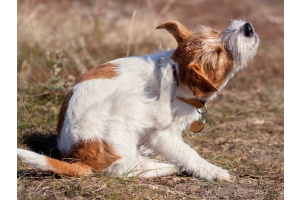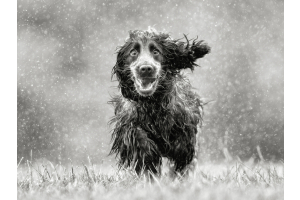Intestinal Hygiene
- - September 19, 2024
A quick internet search for ‘can my dog eat garlic?’ can send you down a rabbit hole of conflicting information. There seems to be a general consensus that garlic is toxic to dogs and shouldn’t be consumed under any circumstances. But is that really the case?
Garlic, or Allium sativum, is a vegetable that has been used to both flavour food and cure ailments (human and animal) across various cultures for centuries. As part of the Allium family, garlic is related to onions, chives leeks and shallots – this is where much of the confusion regarding its toxicity stems from. Garlic is high in inulin, amino acids, sulphur, zinc, potassium and phosphorus. It also contains vitamins A, C and B-complex, calcium, magnesium, manganese, selenium and germanium. Perhaps most importantly, garlic also contains bioactive Allicin and Ajoene.
Without getting too deep into the science behind it all, alliin (a noted sulfoxide) combines with alliinase (an enzyme) when garlic is chopped, crushed, minced or chewed.
- - February 02, 2024
Intestinal Hygiene - Dogs and Cats
There are many types of worms (known as intestinal parasites) that can get into your dog's and cat's GI tract. However some dogs and cats are more vulnerable than others, with an increased risk of contracting an intestinal parasite.
The different types of worms can also affect your dogs in different ways as the symptoms of each type of worm vary as well as the way in which dogs are infected. In the UK, the most common intestinal worms are; roundworms, hookworms, tapeworms and whipworms.
Let's look in detail at each of these worms:-
ROUNDWORMS: These are the most common, especially in puppies. There are two species of roundworm affecting dogs; these are toxocara canis and the less common toxascaris leonine.
Adult roundworms are white, typically 1” to 3” in length but can be up to 7” long. They are spaghetti-like in appearance and are tapered or round – hence the name. They (adult roundworm) live and reproduce in the dog or cats’ small intestine, - - January 26, 2024
We often get asked - how frequently should I test for worms? In this blog we cover some guidelines
Pets can be infected with worms and not show any signs - particularly in the early stages. Worms in pets can cause the following symptoms:-
- diarrhoea
- digestive disturbances,
- bloating and wind
- coughing / severe lung disease
- weight loss, poor condition, anaemia and IBD (Inflammatory Bowel Disease)
For further information on the above please read our blog on which goes into much more detail.
Chemical worming products contain chemicals designed to kill parasites, however it may result in adverse reactions in sensitive pets. This can include ill-effects on the liver, kidneys, bowels, gut flora, nerves and immune system. Following a regular maintainence programme is an alternative and screening can help to prevent significant and sometimes serious damage to the body occurring, as a result of these parasites going undetected for any period of time.
Frequency of Testing
Please note that following





